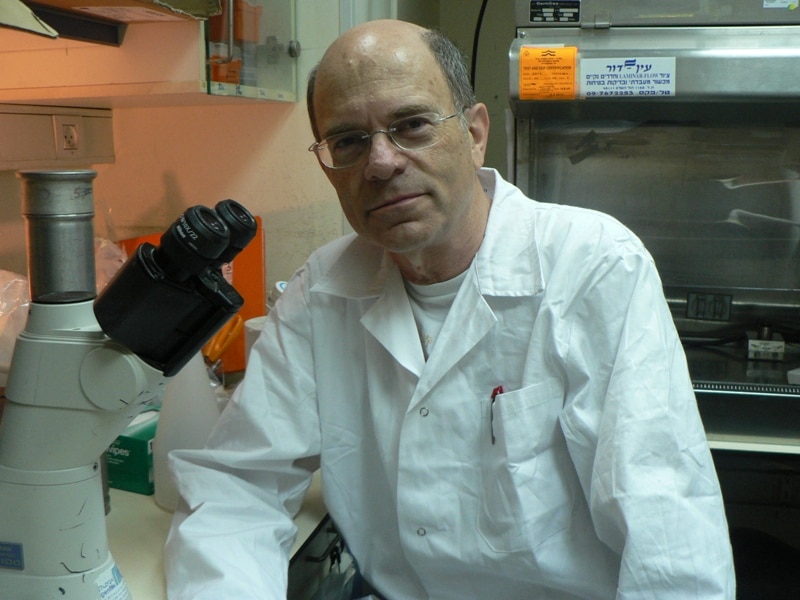Winner of the Israel Prize in the field of life sciences research - Prof. Yosef Shilo

The Minister of Education, Gideon Sa'ar, announced today, Thursday, the winning of the winner of the Israel Prize in the field of life sciences research, Prof. Yosef Shila, for the year XNUMX and congratulated him on his winning.
In its reasoning for awarding the prize, the committee noted that Prof. Yosef Shiloh is a pioneering researcher in the field of human genetics. Prof. Sheila discovered a key gene in protecting the hereditary material in each cell. This finding is a breakthrough in understanding the biology of cancer and enables new approaches to detect genetic defects in humans.
The chairman of the award committee in the field of life sciences research was Prof. Meir Wilchek, with Prof. Verda Shoshan Barmetz, Prof. Shlomo Grossman and Prof. Haim Sider serving as members of the committee.
Prof. Yosef Shilo - Curriculum Vitae
Yosef Shila was born in 1949. He grew up and was educated in Haifa until he was drafted into the IDF.
Prof. Yosef Shila, who started his scientific training at the Technion, graduated there with a Bachelor's degree (BSc) with first class honors. He continued his studies in human genetics at the Hebrew University of Jerusalem, where he completed a master's degree (MSc) with high honors and a doctoral degree (PhD). Immediately after, he specialized in human genetics at the universities of Chicago and the Netherlands and completed post-doctorate studies at Harvard Medical School, all places known for cutting-edge methods that place them at the forefront of science. In 1985 he was accepted as a faculty member in the Department of Human Heredity at the Sackler School of Medicine at Tel Aviv University. At the beginning of his academic career, he spent a year as a research fellow at the medical school of University of Michigan (1993-1992), in the laboratory of Prof. Francis Collins, who later headed the National Center for Human Genome Research and led the Human Genome Project. Prof. Collins was a pioneer in the study of genes for diseases, by developing a method of cloning genes according to their position (positional cloning). Prof. Sheila used this method to discover his most important discovery, the identification of the gene for the incurable disease Ataxia-Telangiectasia (AT). In 2005-2006, Prof. Sheila was a Fogarty fellow at the National Institute for Human Genome Research inThe National Institutes of Health of the United States bMaryland, where he specialized in creating a murine model for AT.
Four years after being appointed as a faculty member, he was promoted to the rank of associate professor and six years later, in a shorter time than usual, he became a full professor.
The discovery of the mutation in the AT gene, and the characterization of the mutant ATM protein by Prof. Sheila, led over the years to 160 scientific publications, among them in the most cited journals, including Science, Nature,
Proc. Natl. Acad Sci USA, American Journal of Human Genetics, and more. He also published 30 invited reviews, reports and commentaries from various conferences, two entries in encyclopedias and 21 chapters in books.
Prof. Sheila has won no less than 37 awards, scholarships and honors. Among other things, he is the recipient of the EMET Cancer Research Award for 2005, awarded by the A.M.N. Foundation. For the promotion of science, culture and art in Israel, under the auspices of the Prime Minister of Israel. In the same year he was also elected as a member of the Israeli National Academy of Sciences.
Prof. Sheila's contribution to the education of the next generation of scientists in Israel was made in 40 students who studied with him for a qualified degree, 33 doctoral students and another 16 who completed their post-doctoral training. His involvement and contribution to the national and international scientific community are prominent and reflected in his participation in various committees, including scientific committees for prestigious Israeli awards such as the Landau Lottery Prize for Science and Research, the Klor Science Scholarship, the Ministry of Education Committee for the Alon Scholarship and the Technion Hervey Prize Committee. Prof. Sheila was invited to lecture at nearly 200 national and international conferences and was a keynote speaker at 12 conferences. He is an editorial member of several journals, including: European Journal of Human Genetics and EMBO Molecular Medicine. He is currently in charge of the David and Inez Meyers Chair for Cancer Genetics Research in the Department ofmolecular genetics of man andbiochemistry at the Sackler Faculty of Medicine at Tel Aviv University.

One response
The dear professor helped me and my friend
In preparing a work for high school on AT
When we were 15, (about 4 years ago)
Just because we asked
And freed us of his time, which I now know how to appreciate
How expensive is it…
I wanted to take advantage of this opportunity to thank him!
He deserves the award!